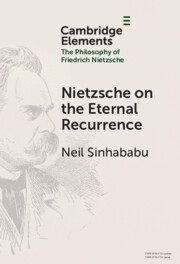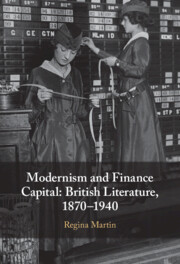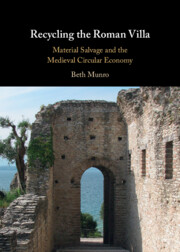183 results
9 - Getting Truth into Business
-
- Book:
- A Climate of Truth
- Published online:
- 27 March 2025
- Print publication:
- 27 March 2025, pp 193-211
-
- Chapter
- Export citation
5 - Legal Knowledge in Competitive Environments
-
- Book:
- Legal Knowledge in Organizations
- Published online:
- 15 March 2025
- Print publication:
- 27 March 2025, pp 86-115
-
- Chapter
- Export citation
7 - Moral Decision Making
- from Part II - Thinking and Feeling
-
-
- Book:
- The Cambridge Handbook of Moral Psychology
- Published online:
- 20 February 2025
- Print publication:
- 27 February 2025, pp 153-171
-
- Chapter
- Export citation
Measuring the value of water quality improvements for recreation use on an urban river: a travel cost contingent behavior approach
-
- Journal:
- Agricultural and Resource Economics Review , First View
- Published online by Cambridge University Press:
- 20 February 2025, pp. 1-23
-
- Article
-
- You have access
- Open access
- HTML
- Export citation
12 - Worship for Atheists
- from Part III - Normative Aspects
-
-
- Book:
- The Philosophy of Worship
- Published online:
- 09 January 2025
- Print publication:
- 23 January 2025, pp 209-226
-
- Chapter
- Export citation
Chapter 9 - Literary Value and Affective Intensity in The Waste Land
- from Part III - Modernism, Affect, and the Rise of the Modern Corporation
-
- Book:
- Modernism and Finance Capital
- Published online:
- 12 December 2024
- Print publication:
- 19 December 2024, pp 165-185
-
- Chapter
- Export citation
3 - What Makes the Family Special?
- from Part I - The Family in EU Law: Concept and Context
-
-
- Book:
- The Family in EU Law
- Published online:
- 12 December 2024
- Print publication:
- 19 December 2024, pp 37-55
-
- Chapter
-
- You have access
- Open access
- HTML
- Export citation
4 - The Persistence of Kindred Spirits: Tax and Values in Istrian Distilling
-
-
- Book:
- Anthropology and Tax
- Published online:
- 12 December 2024
- Print publication:
- 19 December 2024, pp 113-135
-
- Chapter
-
- You have access
- Open access
- HTML
- Export citation
Introduction
-
- Book:
- Modernism and Finance Capital
- Published online:
- 12 December 2024
- Print publication:
- 19 December 2024, pp 1-34
-
- Chapter
- Export citation
Chapter 5 - Slicing, Dicing, and Repackaging
- from Part II - Finance Capital and the Economic and Cultural Turn toward London
-
- Book:
- Modernism and Finance Capital
- Published online:
- 12 December 2024
- Print publication:
- 19 December 2024, pp 94-107
-
- Chapter
- Export citation
Chapter 8 - The Affective Bloom-Space of Imagism
- from Part III - Modernism, Affect, and the Rise of the Modern Corporation
-
- Book:
- Modernism and Finance Capital
- Published online:
- 12 December 2024
- Print publication:
- 19 December 2024, pp 150-164
-
- Chapter
- Export citation
Conclusion
-
- Book:
- Modernism and Finance Capital
- Published online:
- 12 December 2024
- Print publication:
- 19 December 2024, pp 186-199
-
- Chapter
- Export citation
14 - Sharing beyond the State: International Tax Norm Negotiations at the OECD
-
-
- Book:
- Anthropology and Tax
- Published online:
- 12 December 2024
- Print publication:
- 19 December 2024, pp 326-352
-
- Chapter
-
- You have access
- Open access
- HTML
- Export citation

Nietzsche on the Eternal Recurrence
-
- Published online:
- 13 December 2024
- Print publication:
- 16 January 2025
-
- Element
- Export citation

Modernism and Finance Capital
- British Literature, 1870–1940
-
- Published online:
- 12 December 2024
- Print publication:
- 19 December 2024
5 - Magendo
-
- Book:
- Money, Value, and the State
- Published online:
- 05 December 2024
- Print publication:
- 12 December 2024, pp 263-303
-
- Chapter
- Export citation
Calabresi’s invite: bridging Law & Society and Law & Economics through “situated valuation”
-
- Journal:
- Law & Society Review / Volume 58 / Issue 4 / December 2024
- Published online by Cambridge University Press:
- 18 November 2024, pp. 635-662
- Print publication:
- December 2024
-
- Article
-
- You have access
- HTML
- Export citation

Recycling the Roman Villa
- Material Salvage and the Medieval Circular Economy
-
- Published online:
- 08 November 2024
- Print publication:
- 31 October 2024
Duty and Deontology
-
- Journal:
- Canadian Journal of Philosophy / Volume 53 / Issue 4 / May 2023
- Published online by Cambridge University Press:
- 11 September 2024, pp. 289-300
-
- Article
-
- You have access
- Open access
- HTML
- Export citation
Chapter 19 - Critical and Literary Theory
- from Part III - Cultural Transfers
-
-
- Book:
- Europe in British Literature and Culture
- Published online:
- 06 June 2024
- Print publication:
- 13 June 2024, pp 306-321
-
- Chapter
- Export citation


